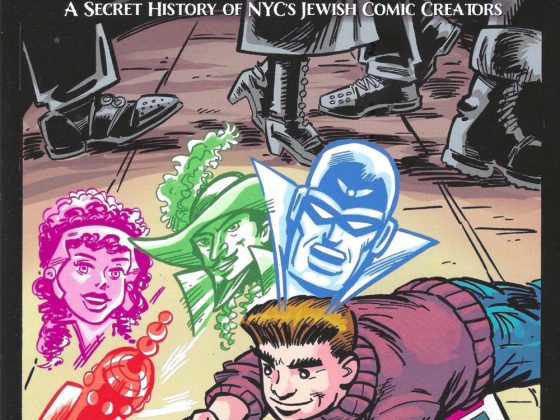This week marked 50 years since I became a comics professional, getting the modest assignment to write Joe Orlando’s letter columns at DC. Looking back over a long and complex run, I’m particularly proud of a few things:
- My role in writing the first standard talent agreement for mainstream comics. After the passage of the 1976 Copyright Act, companies needed to have written agreements with comics talent for the first time. We chose to embody simple but honest terms in DC’s, including things either not guaranteed before (like the return of artwork to artists and reprint fees) or ambiguous (like a specific deadline time within which the assignment needed to be completed, avoiding the occasional situation where someone would come in with work authorized ages before and since reassigned to another person). It was still fairly one-sided, but a great improvement over what had been the practice before, or how some of our competitors chose to deal with the situation.
- Similarly, my participation in getting standard royalties put in place at DC, and as a result, elsewhere in the mainstream. That was very much a team effort, but I found a way to fund it within our budgets that made it an easier sell to management. Top talent like Simon & Kirby had gotten participations back to the dawn of the Golden Age, but making it a basic part of compensation that any successful project could theoretically achieve changed comics, and modernized the mainstream publishers at a critical moment as we moved from a focus on newsstands to comic shops and a more sophisticated audience.
- Less a single dramatic moment, but leading the team that took critical steps to create the graphic novel form in America. Working out a unique business structure to do co-editions of our earliest graphic novels like DARK KNIGHT RETURNS and WATCHMEN, building the strength of graphic novel series like SANDMAN, and ultimately arranging distribution that made these forms more available through changes in how comic shops could order them or bookstores could develop real graphic novel sections was the work of a decade or more, but pioneering in this fulfilled a long-held goal of mine to have comics’ best material consistently available. It seems silly today in a digital, internet-connected world, but it was radical and important in its time.
- Finally, the fact that I got to contribute some elements and stories to the mythos of comics that have endured. It’s a delight to see Helena Wayne back in action again, or see my Lucien become Lucianne, and wonderful to see “the Great Darkness Saga” still pop up on top lists of stories to read.
Thanks to everyone who made this possible, from mentors to readers; it’s been a hell of a journey.

Congratulations on an amazing anniversary, Paul, and thank you for how much you did for the comic book industry, from one fan to another. I started my comic book hobby in 1967, at age 5, when my dad bought Superman #198 at a corner news stand in Trenton, NJ. I’ve been reading ’em ever since, and am currently sorting out old fanzines (RBCC, TCR, TCJ) to sell online. I well remember picking up some of your earliest comic book writing – I was thrilled that a kid only a few years older than me was working in comics! I wanted to do that – only gave up that “dream” in the late 1980s! The things that you did at DC Comics were, and are, vital to keeping the industry and the artform alive. I wish you continued success – and I’m looking forward to your Avengers mini-series (currently re-reading the LSH books you wrote!). Happy New Year!